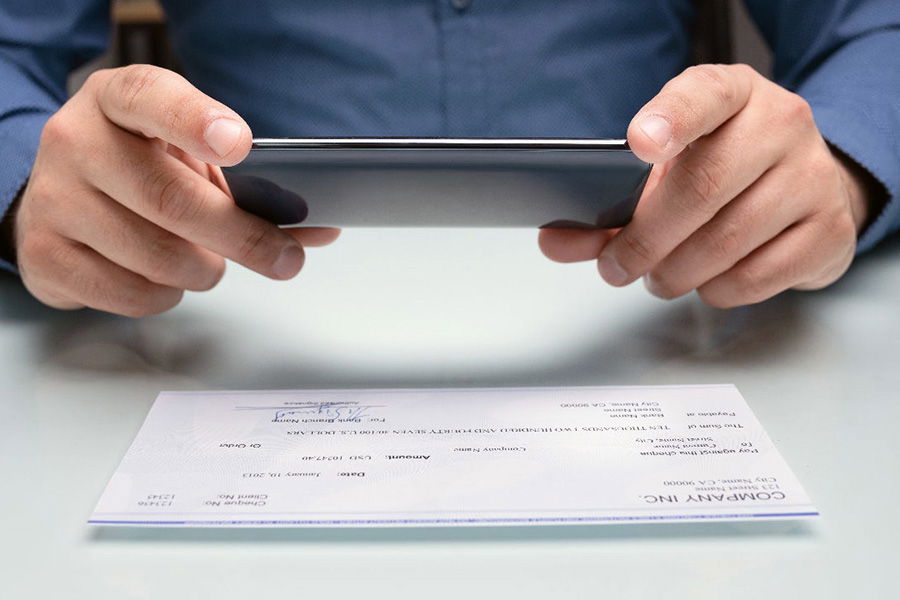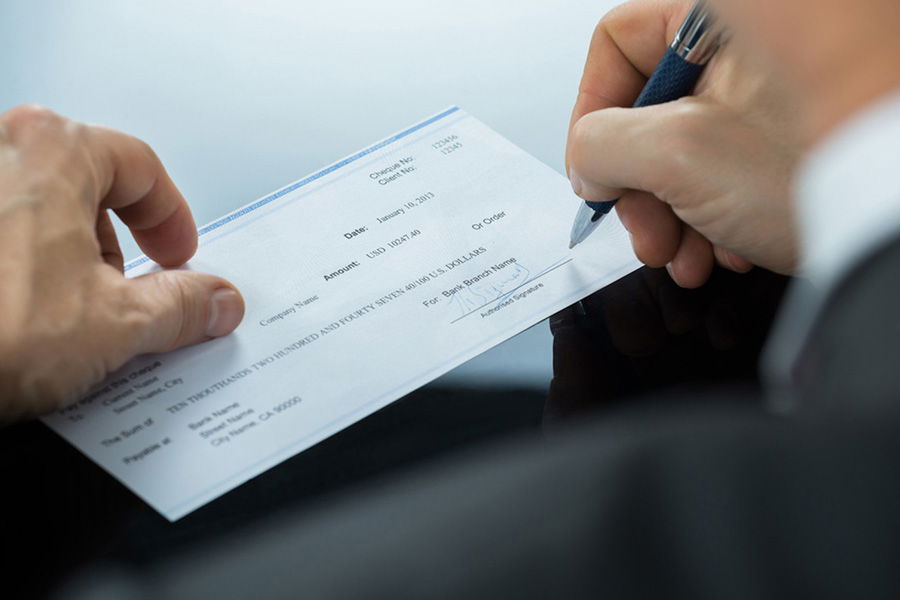Sometimes a check you’ve written needs to be stopped before it’s cashed. Maybe it was lost in the mail, sent to the wrong person, or you spotted a mistake after handing it over. In these situations, you can request a “stop payment” from your bank or credit union. This tells them not to process the check if it hasn’t cleared yet.
Canceling a check can protect your funds, but it usually comes with a fee and must be done quickly before the check goes through.

Key Takeaways
- Canceling a check tells your bank not to process it if it hasn’t cleared yet, but it usually comes with a fee.
- You must act quickly—once the check is cashed or deposited, it can’t be stopped.
- Your bank will need details like your account number, check number, amount, and payee name to process the request.
What Canceling a Check Means
When you cancel a check, you’re telling your bank to block it from being processed. This can only happen if the check hasn’t cleared yet.
For example, if you mail a rent check but realize you wrote the wrong amount, you can ask your bank to stop the payment before your landlord deposits it. Canceling a check doesn’t erase the obligation to pay—it just prevents that specific check from being honored.
When You Should Cancel a Check
There are several situations where stopping a check before it clears can protect your money and prevent payment errors. Here are the most common:
- It’s lost or stolen: Prevents unauthorized use if someone finds it.
- It was sent to the wrong recipient: Stops payment before it reaches the wrong person’s account.
- It has an incorrect amount or date: Avoids processing errors that could overdraw your account or cause a payment dispute.
- The payment is no longer needed: Useful if you’ve resolved a bill in another way or canceled a service.
Risks and Limits of a Stop Payment Request
Canceling a check can be effective, but it comes with limitations and costs. Keep these factors in mind before moving forward:
- Fees apply: Most banks and credit unions charge $15 to $35 for each canceled check.
- You must act fast: If the check has already cleared, it’s too late to stop it.
- Stop payments expire: In many banks, the order lasts for six months unless you renew it.
- Processing errors can happen: While rare, a canceled check might still be paid if the bank can’t match the details you provided.
Step-by-Step Guide to Canceling a Check
Canceling a check is a time-sensitive process, so acting quickly can make the difference between success and failure. Follow these steps to make sure your request is processed correctly.
- Check the payment status: Use online banking, your mobile app, or call your bank to see if the check has cleared.
- Contact your bank immediately: The sooner you request a stop payment, the more likely it is to work.
- Provide the required details: This usually includes your account number, the check number, the amount, and the payee’s name.
- Get and save confirmation: Your bank will give you a confirmation number or written notice. Keep it in case there’s a dispute.
Canceling a Check: Fees You Can Expect
Most banks and credit unions charge a fee to stop payment on a check, though the exact amount depends on your account type and institution. Here’s what you might encounter:
- Typical fee ranges: Expect to pay between $15 and $35 for each canceled check.
- Possible fee waivers: Some banks waive fees for premium account holders or as part of a relationship banking package.
- Renewal fees: If the stop payment expires before the check is presented, you may have to renew it for an additional cost.
Time Frame for Canceling a Check
Timing is critical when you need to cancel a check. The longer you wait, the less likely it is your request will be successful.
- Ideal time to act: Initiate the stop payment as soon as you realize the check needs to be canceled.
- Canceling after deposit but before clearing: Some banks can still stop the payment if the check is deposited but hasn’t cleared. Contact your bank immediately to see if this option is available.
How to Cancel a Cashier’s Check
Cashier’s checks are guaranteed by the bank, making them harder to cancel than personal checks. The process can take longer and requires additional documentation.
- Why it’s more complicated: Because the funds are drawn directly from the bank, a cashier’s check is often treated like cash.
- Waiting periods and proof requirements: If lost or stolen, the bank may require you to complete a declaration of loss and wait up to 90 days before issuing a refund.
- Special note on certified checks: Like cashier’s checks, certified checks are guaranteed, but cancellation rules vary by bank. Expect to provide proof of loss or theft and follow a waiting period.
How to Avoid Needing to Cancel a Check
Taking a few precautions before you write or send a check can help you avoid the cost and hassle of canceling it later.
- Confirm recipient details: Double-check the spelling of the payee’s name and ensure you have the correct mailing address.
- Encourage prompt depositing: Ask the recipient to cash or deposit the check quickly to reduce the risk of loss or theft.
- Use secure mailing methods: If mailing a check, use certified or tracked mail for added security.
- Use electronic payment methods: Options like direct deposit, online bill pay, or payment apps can be faster and safer than physical checks.
- Keep records: Use carbon copy checks or maintain a check log to track issued checks and amounts.
Final Thoughts
Canceling a check can help you protect your money, but it only works if you act fast. Once the check clears, it’s too late to stop it. Contact your bank right away with all the details they need to process the request.
The best approach is to prevent the need for cancellation in the first place. Double-check payment details before sending a check, and consider using secure mailing methods or digital payment options. These extra steps can save you time, money, and stress.
By staying alert and taking precautions, you can keep your payments safe and reduce the chance of a lost or incorrect check causing problems.
Frequently Asked Questions
Can I cancel a check if I don’t have the check number?
Yes. Your bank can often find the check using other details like the amount, payee name, and the date it was issued. The more information you provide, the easier it will be for them to locate and stop the payment.
What happens if I try to cancel a check after it’s deposited?
If the check has been deposited but hasn’t cleared yet, your bank might still be able to place a stop payment. However, once the funds clear, the payment can’t be reversed through cancellation—you would need to resolve the issue directly with the payee.
Will canceling a check affect my credit score?
Canceling a check doesn’t directly impact your credit score. The only way your credit score could be affected is if the canceled payment leaves an unpaid bill that ends up in collections.
How long will my stop payment request remain active?
Most banks keep a stop payment in place for about six months. Some allow you to extend it if the check remains outstanding, though you may have to pay another fee to renew the request.




